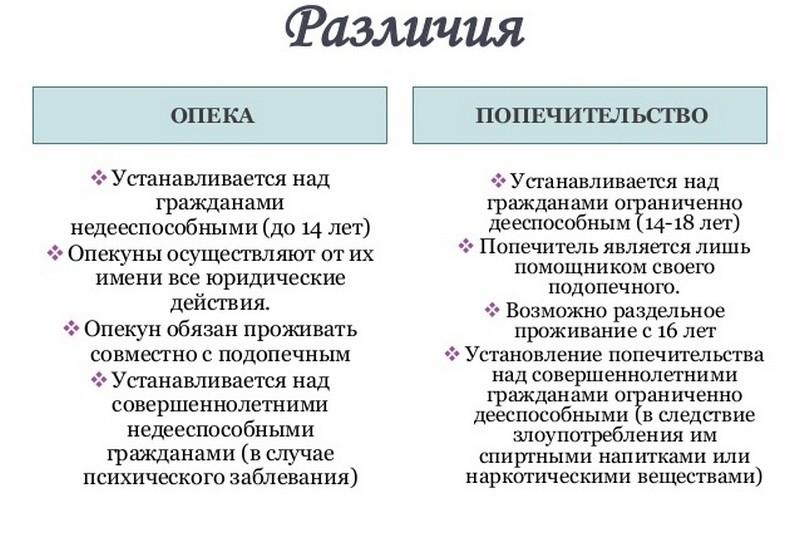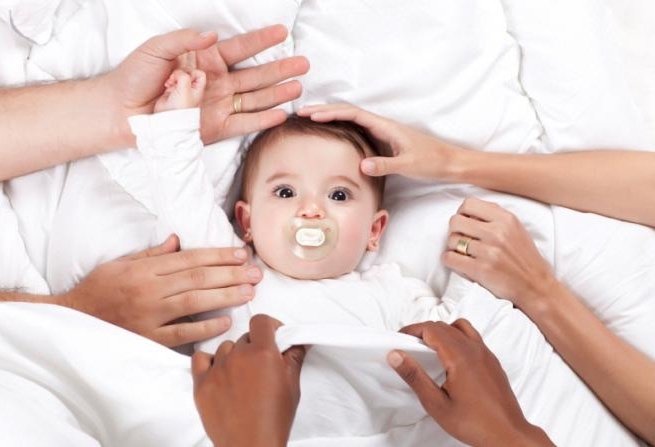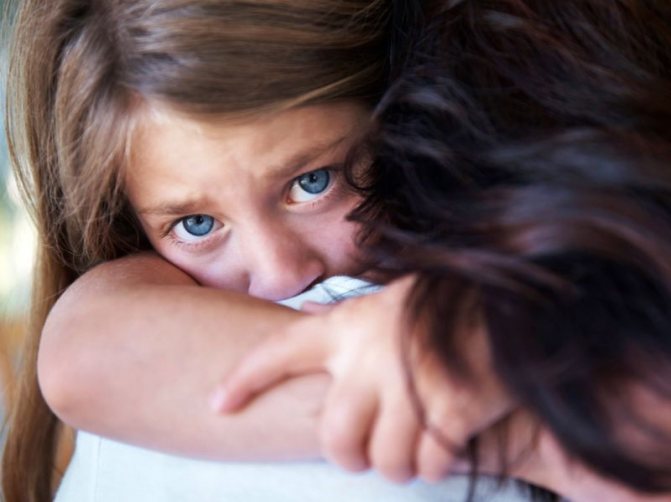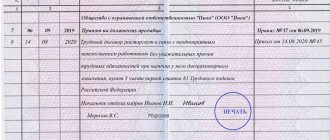Various life situations can lead to minor children being left without parental protection. In such cases, children are placed in shelters, from there, if they are lucky, they are adopted, and they find themselves in full-fledged families, but since the adoption procedure is quite complex, the law provides for slightly simplified types of registration of children for raising in families, such as guardianship and patronage.
Guardianship concept
So, who is a trustee and what is the guardianship procedure every applicant for this role should know:
- Guardianship is a form of protection for citizens in need, which manifests itself in material, spiritual and intellectual and legal protection
- A guardian is a person who protects the rights and interests of a child or other person who needs it.
Such protection is assigned both to persons who are orphaned and under the age of majority, and to those whose parents were deprived of their rights to the minor.
Who cannot become a guardian and trustee
Based on Article 35 of the Civil Code of the Russian Federation, Article 146 of the RF IC, as well as the List of Diseases of the RF Government No. 117 of February 14, 2013, the following persons cannot be guardians of minor children:
- limited or deprived of parental rights;
- having alcohol or drug addiction;
- who have lost the right to perform guardianship duties;
- removed from the duties of adoptive parents through their own fault;
- were under criminal prosecution or had a criminal record;
- who had a record of being reported to the police;
- disabled people of group 1;
- those suffering from chronic diseases that are at risk (group 1 and 2 pulmonary tuberculosis; cancer stages 3 and 4, or stages 1 and 2 without surgery; mental disorders);
- those in same-sex marriage;
- citizens of states that allow unions between persons of the same sex.
In addition, those who have not completed the appropriate training for guardianship will not be able to obtain guardianship. The only exceptions are:
- close relatives;
- persons with experience of guardianship, provided that they have not been removed from their duties;
- persons who have experience in adoption and are not deprived of this right.
Sometimes a child’s reluctance to see a specific person claiming this right as his guardian is one of the reasons for refusing guardianship. However, the child’s choice has no specific legal significance, and the decision may be made contrary to his opinion.
Legislative regulation
All issues related to guardianship and trusteeship are regulated at the legislative level by acts such as:
- Federal Law-48 dated April 24, 2008
- RF IC, and in particular Ch. from 18 to 20
- Civil Code of the Russian Federation from 31 to 40 art.
- Decree of the Russian Federation 117 of 02.14.13. and 423 dated May 14, 2009.
These documents contain the rights and responsibilities of guardians, trustees, as well as a list of requirements for candidates.
Documents for completing the procedure
The main difficulties when registering guardianship arise precisely with the collection of documents, since the list of required papers is really long.
All requirements for applicants must be documented.
So, the certificates and documents that a potential representative of the baby will need :
- An extract from the house register confirming the availability of housing and its characteristics;
- Certificate from the Department of Internal Affairs , which states that the person has no criminal record;
- Documents from the place of work confirming all sources of income ;
- Medical certificates indicating the normal state of health of the potential guardian;
- Marriage certificates, as well as a copy of the passport ;
- Certificate of completion of special courses for future parents (required if the potential guardian did not have children of his own);
- A well-written personality profile.
If a child in need of guardianship is over 10 years old, the authorities making the relevant decision have the right to require the child’s written consent to complete the procedure.
Sample characteristics from the place of work
By the way, the characteristics of a guardian are the most important document in this whole pile of papers. This report notes the main points of a person’s biography, his level of education, place of work, and degree of preparedness for future responsibilities .
You need to draw up a specification according to the declared sample, which can be easily downloaded here.
also ask your employer or neighbors to write a reference confirming all the words of the potential guardian.
In addition to biographical information, such a paper indicates the person’s age, place of residence and state of health. In a word, from this paper alone you can create a full-fledged portrait of a person .
The difference between guardianship and guardianship
Many citizens are interested in the question of what are the differences between guardianship and trusteeship:
- the most important difference is the age of the persons falling under protection, that is, for citizens whose age is less than 14 years, a guardian is appointed, and guardianship is established over a child over 14 and upon reaching 18 years of age
- a guardian is a person who represents the interests of a minor citizen completely and in this case transactions are made by the guardian on behalf of the pupil, and the trustee gives his approval or prohibition on certain actions of his pupil
- guardianship imposes full financial responsibility for the actions of the pupil, and in the case of guardianship, responsibility falls on both parties
- in the presence of guardianship, living together is mandatory, but in guardianship, upon reaching the age of 16, the law provides for separate living at will with the permission of the authorized organization and in the interests of the minor.
Both types of patronage over minors provide their representatives with a number of responsibilities and rights.

Who can become a trustee
In accordance with the RF IC, any person who has not been deprived of parental rights and is legally capable can become a guardian of a citizen whose age has not reached the age of majority. When a child reaches ten years of age, he has the opportunity to agree or not with the candidate for this role. In addition, the law provided for a category of persons who have a preferential right to become trustees:
- these are persons who have a blood connection with the child of the grandparents
- brothers and sisters whose age has reached 18 years
- other citizens who have at least some kind of family connection
Attention: if there are several remaining children, then according to the law they cannot be separated and only a joint family is allowed.
Over whom it is installed
The establishment of guardianship occurs over a person whose age is 14 years or older; these circumstances are caused by the fact of the absence of the necessary protection from parents. The circumstances that led to this situation include:
- the death of blood guardians;
- deprivation of parental rights;
- finding parents in places of serving punishment for the criminal act they committed
- if parents do not fulfill their obligations to the child
- placed in institutions for compulsory treatment
- as well as in cases where they are declared missing in court.
In all cases, their patron will be entitled to payments from the state, and if the child is placed in care due to the parents’ failure to fulfill their obligations, then monetary penalties will be collected from them in the form of alimony.

Requirements for a trustee
A citizen who has applied to take custody of a child must meet the requirements established by law, these include:
- age, the candidate must be over 18 years old;
- be fully competent;
- have a stable income in an amount that allows you to take on additional expenses for your future ward;
- the applicant must also have residential premises that are his property;
- the health of the future caregiver must meet the requirements established by the authorized services;
- there should be no criminal record for acts against the life and health of other citizens;
- do not consult such specialists as a narcologist and a psychiatrist;
- complete the necessary training.
Attention: when several applicants submit an application for guardianship of one child, the services consider all applicants and choose the one that most meets the requirements.
Who can become a guardian and trustee
The Family Code of the Russian Federation, in particular Article 146, determines that a minor child can be taken into custody by any person who has not been deprived of parental rights, is fully capable and has reached the age of majority. It also states that for children over 10 years of age, a prerequisite for the appointment of a guardian is their consent.
Article 10 of the Law “On Guardianship and Trusteeship” defines persons who have an advantage over others to become guardians of a minor ward. These include:
- the child's grandparents;
- adult sisters and brothers;
- other relatives.
The same categories of persons have a priority right when taking guardianship of adult incapacitated citizens, but the following are added to them:
- Parents and spouses;
- Adult grandchildren and children.
The Civil Code of the Russian Federation provides a whole list of conditions relating to both the social status and moral qualities of a potential guardian. The guardianship and trusteeship authorities check the applicant’s compliance with the following requirements:
- absence of a criminal record and absence from law enforcement agencies;
- financial wealth that provides the child with all the conditions necessary for a comfortable life;
- the presence of real estate in which conditions must be created for the child to live;
- friendly relations between the trustee and the ward;
- the child's opinion regarding his guardian.
Article 10 of Law No. 48 states that when establishing guardianship over minor brothers and sisters, transferring them to different guardians is impossible (the only exception is in those cases when this would be in the interests of the children).

It is also possible to appoint several guardians at the same time if this is in the best interests of the child. In this case, the duties and responsibilities for the ward are borne by all trustees (unless otherwise specified by an act of the guardianship authorities or an agreement).
Rights and responsibilities of a trustee
The rights and obligations of a trustee are established by law and violation of them can lead to unpleasant consequences. So, what are the responsibilities of a trustee:
- management of property owned by the ward;
- conducting transactions with the participation of the ward;
- the guardian must deal with all issues and problems in the child’s life, in particular those related to his education, health, etc.;
- engage in education to ensure his vital needs;
- help develop in spiritual and moral directions;
- protect and represent the rights of the minor.
The rights of trustees include:
- the opportunity to independently choose methods of education, provided that they are not immoral or illegal
- The teacher has the right to choose an educational institution for his ward, subject to the agreement of the choice with the guardianship authorities.
All actions of the trustee are controlled by the authorized body and in case of any discrepancy with acceptable standards, the violator will be held accountable as provided for by the legislation of the Russian Federation.
The caregiver plays an important role in the life of the child, and therefore the requirements for candidates are quite serious, and such families are under the supervision of an authorized body. There is a difference between guardianship and trusteeship, but the responsibility for both types of patronage is quite serious and therefore applicants should carefully study all the requirements and responsibilities that are presented to them.
What are the responsibilities of guardians and trustees?
After official registration of guardianship, the future parent is entrusted with a wide range of responsibilities for raising the child and ensuring his full development as an individual. So, the person who accepted the child for maintenance is obliged to:
- Take an active part in the child’s life, make sure that the family member receives a decent education and leads an active lifestyle. In addition, must ensure the financial well-being of the child;
- Live together with the minor in order to have access to his daily life;
- Monitor the health of children. In case of health problems, it is necessary to provide treatment and purchase all necessary medications.
In addition, the law obliges the guardian to promptly notify the guardianship and trusteeship authorities in the event of a move or other circumstances.
Conclusion. The procedure for establishing guardianship is based on the interests of the children. Potential guardians are subject to a whole range of requirements to ensure that the child is in good hands.
Was the Recording helpful? No 6 out of 6 readers found this post helpful.








